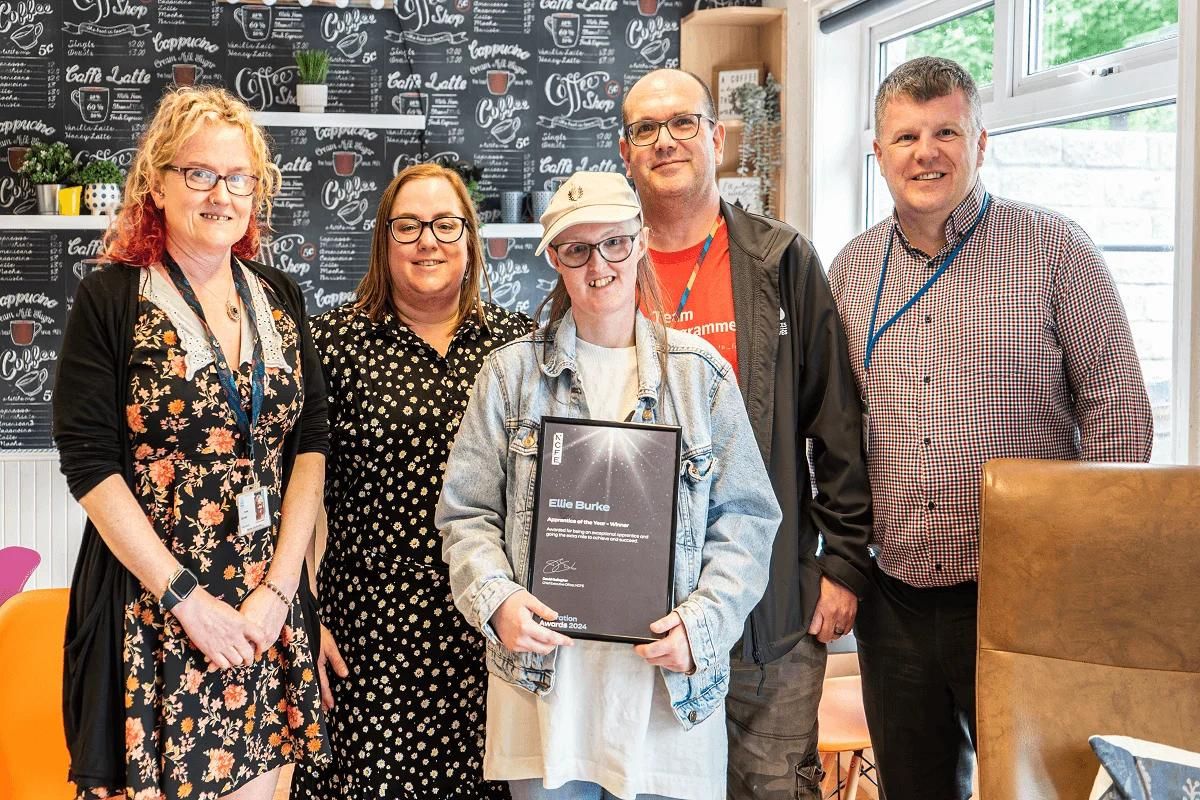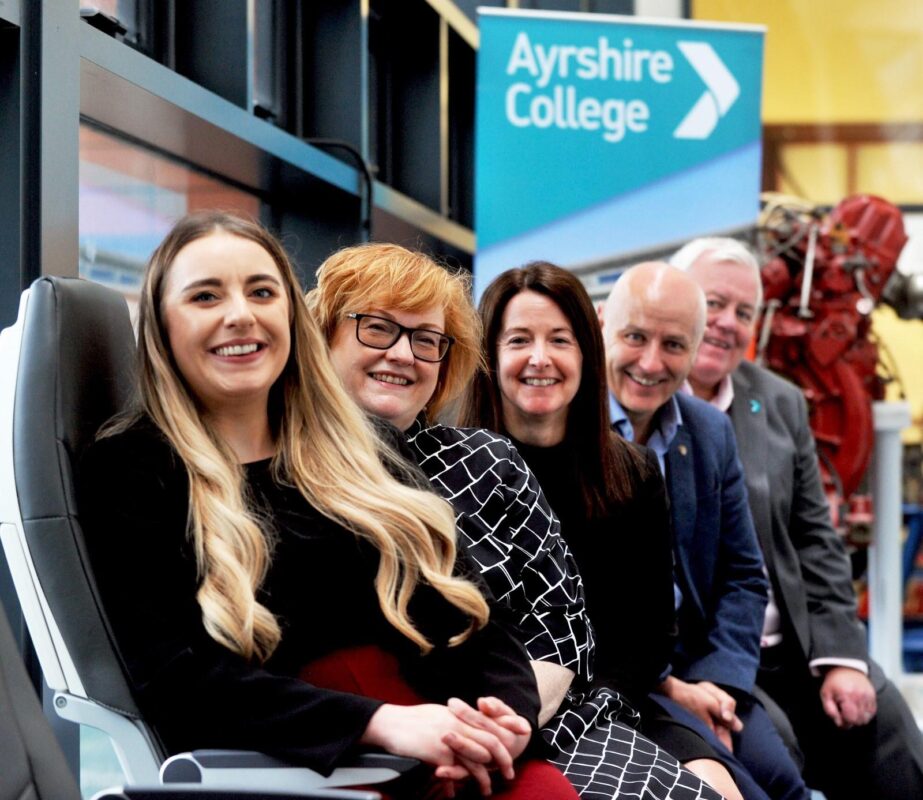Fostering Young Entrepreneurs: A UK Roadmap

Philip Salter discusses policies the UK government should implement to support young entrepreneurs, including addressing funding uncertainties, embedding entrepreneurship education, fostering edtech engagement, increasing innovation exposure for underrepresented groups, and promoting entrepreneurship to solve social and environmental challenges, ultimately driving economic growth.
Introduction
As the nation approaches a pivotal election, the incoming government will face significant challenges but also unprecedented opportunities. Economic constraints demand that we adopt innovative strategies to achieve greater efficiency and impact. Yet, this moment presents a chance to harness the potential of individuals, fostering a more dynamic, entrepreneurial and productive economy.
Technological advancements are already rapidly transforming the job market, necessitating fresh approaches to prepare the next generation for future opportunities. Entrepreneurs, and the creative thinking and nimble agility they typically possess, should also be recognised as a crucial tool for solving a number of society’s biggest challenges.
This briefing paper highlights some of the key policies we think are required to equip young people with the skills and support they need to succeed at becoming successful business owners, with the know-how to deftly navigate a changing world of work. It is divided into two sections: one looking at immediate-impact policies and one at those that will nurture a sustainable pipeline of innovation in the long term.
At the heart of this discussion are the people these policies aim to empower. Whether it’s transitioning from unemployment to managing a thriving small business, moving from formal employment to scaling a tech startup, or just having the necessary skills for a modern economy – the goal is to enable every individual to realise their full potential through the power of entrepreneurship.
We must ensure that Britain’s young people are not only prepared for the future but are empowered to build it and create a generation for change.
Policies With Immediate Impact
Beyond Formal Schooling
A new government needs to acknowledge that we aren’t starting with a blank slate. There are many incredible entrepreneurship organisations supporting young people in their entrepreneurial endeavours: Young Enterprise, Hatch Enterprise, the Prince’s Trust, Youth Business International (YBI), Launch It, Ultra Education and Founders4Schools to name just a few. They are largely funded by a mix of charitable trusts, the private sector or local government through the UK Shared Prosperity Fund.
Following the UK’s exit from the European Union, the UK Shared Prosperity Fund was put in place in 2022 to replace the European Social Fund. The future of this fund is currently uncertain. First and foremost, Enterprise Support Organisations receiving resources through the UK Shared Prosperity Fund need clarity on its future.
Beyond the immediate funding uncertainty, Enterprise Support Organisations often express that their operational freedom is curtailed by being measured on outcomes and outputs, which aren’t always the right metrics to deliver the most value for the next generation.
It’s not for us to give advice to the private sector or charitable trusts on how they should or shouldn’t fund charities, but the government can lead the way by ensuring that Enterprise Support Organisations should be brought in at an early stage to advise on the desired outputs and measurements when the government decides on the focus and scope of local government interventions. This will help guide policymakers in setting the right targets.
In addition, the government can encourage innovation in interventions. To this end, local and national governments should fund rigorous trials to allow Enterprise Support Organisations to test out new ways of supporting young entrepreneurs. This could be created along the lines of how the Business Basic Fund operates, whereby we can all learn from the successes and failures of interventions. Importantly, those interventions that have been particularly successful can be considered for core government funding or funding to scale it. They can also be copied by other Enterprise Support Organisations in different regions.
Entrepreneurship for All
Until recently, we offered support to assist unemployed young individuals to start their own businesses. The original Enterprise Allowance Scheme (EAS) was instrumental in supporting now-renowned entrepreneurs such as Superdry’s Julian Dunkerton, Creation Records’ Alan McGee, and the artist Tracey Emin.
Statistics show that nearly two thirds of EAS participants continued to run their businesses 18 months after enrolling, and one fifth of these businesses employed at least one additional person. According to World Bank analysis, the cost per job created under the EAS was approximately £1,729 at that time, equivalent to about £5,991 today. The EAS was eventually replaced by the much less generous New Enterprise Allowance (NEA), which has also been discontinued.
The new government should reinstate the EAS. There is a strong business case for its return, and ensuring it is more generous than other out-of-work benefits would incentivise more young people to become entrepreneurs. Clearly, cost will be an issue, so the government could scale the number of applicants allowed on the scheme in line with a demonstrated return on investment and work with Enterprise Support Organisations to ensure that young entrepreneurs get the necessary support to run their businesses.
Banking on Success
According to the latest Global Entrepreneurship Monitor UK Report, youth entrepreneurship (among individuals younger than 35) has been increasing over the last 20 years in the UK. The latest figures show that 12.1% of 18 to 24-year-olds are involved in early-stage entrepreneurial activity, so it follows that the UK has a sizeable number of entrepreneurs under the age of 18 too.
A business bank account is essential for running a business – not least in order to pay taxes. Organisations working with young people often find not being able to open a bank account a significant impediment. Given that current accounts with limited facilities are already allowed, we should allow under-18s to open business bank accounts without credit facilities to help them separate personal and business finances from a young age.
Policies for Longer-Term Impact
Embedding Entrepreneurship
When it comes to formal education, there are already a plethora of calls to put more on the curriculum. Much of this is entirely well-intentioned and represents the admirable passion many have to create a holistic education system in which students are exposed to as broad a learning experience as possible. But teachers – and indeed students themselves – only have so many hours in the day. Moreover, young people don’t necessarily need to study entrepreneurship as a separate subject. Instead, we need to ensure that the essential skills necessary to be entrepreneurial are embedded across the curriculum from primary school.
In a previous paper created in partnership with Young Enterprise, What Applied Learning Really Looks Like, we made the case for the value of applied learning in teaching. We argued that imitating real-life contexts, with their relevance made obvious to young people, is the best way to teach young people what they really need to know. Applied learning can boost pupils’ confidence, improve academic results, and prepare young people for the world beyond school.
Along similar lines, Skills Builder Partnership distinguishes between basic skills (literacy, numeracy, and digital skills), essential skills and sector-specific technical skills. Essential skills can be broken down into listening, speaking, problem-solving, creativity, staying positive, aiming high, leadership and teamwork. Its Universal Framework is already used by 500+ schools and 87% of secondary schools have a touchpoint with.
In the research literature, these sorts of skills are often referred to as “transversal” or “higher order cognitive” skills. We need to ensure that we understand these, applied learning and other pedagogies as best as we possibly can, which is why the government should invest in further long-term research into the educational, social and economic impact of what works in practice.
Edtech Revolution
Back in 2008, Clayton M. Christensen’s Disrupting Class was published. In it, he and his co-authors argued online learning and other technological innovations would disrupt the traditional classroom model by providing personalised, student-centric education to the benefit of all. Not only does technology have the potential to better build essential skills, but it can also free up teachers’ time, crucially enabling them to offer additional pastoral support in the process.
While more learning is being undertaken with educational technology, its potential remains largely unleashed. A recent report set out some of the challenges for edtech companies trying to sell into government, with the familiar obstacle of procurement representing a major headache. Businesses can find it hard to talk to the right person within government, and too often there’s a lack of meaningful market engagement from the public sector.
As we argued in Procurement and Innovation the Department for Education should ensure there are more ‘meet the buyer’ roadshows. Engagement between buyers and suppliers, outside the formal procurement processes, can allow buyers to see what is possible and allows innovators to tailor or contextualise their offers to better match buyers’ needs. Also, the format of these events needs to change – even when these events take place, innovators aren’t always given a chance to pitch their products. These events should therefore be expanded, and treated as occasions for mutually beneficial, two-way learning, not just dissemination: innovative edtech entrepreneurs should be given more and better opportunities to pitch to government and directly to schools.
Lost Einsteins
Exceptional entrepreneurs and inventors can and do come from all walks of life. Indeed, where people start that journey has a profound implication on the likelihood of whether they will become a great innovator – when economists interrogated a dataset of 1.2 million inventors, they found that a child’s chance of becoming an inventor is tied to characteristics at birth, such as their race, gender and their parents’ socioeconomic class.
They also discovered, however, that exposure to innovation activities in childhood is a primary predictor of individuals becoming an inventor in adulthood. Importantly, they also found that “exposure effects are more likely to be driven by narrow mechanisms such as role model or network effects than factors that only affect general human capital accumulation, such as the quality of schools.”
If formal education isn’t the secret sauce in making inventors, therefore, it suggests that formal education may not be the best – or at least only – place to intervene.
Women, ethnic minorities and disadvantaged young people are as under-represented among high-impact inventors as they are among inventors as a whole, meaning that we have many ‘lost Einsteins’ who would have been changing the world if only they had been exposed to innovation in childhood.
There are already great organisations working on this issue to ensure more young people get to be inspired by entrepreneurs. The next government should undertake a mapping exercise to determine the extent to which young people across different ages and locations are being exposed to entrepreneurship. This would allow local government, schools, colleges and universities, charities, and the private sector to focus efforts on underserved areas.
Being the Change
Entrepreneurship and innovation are also the routes to changing the world. In fact, research we carried out found that entrepreneurs under the age of 35 are more than twice as likely to say their business’ primary aim is to solve a social or environmental problem than older entrepreneurs. But this isn’t at the cost of profit, as we also found that higher turnover is correlated with the likelihood of agreeing that tackling a social or environmental problem is their business’ primary aim.
The government can incentivise young people to solve big problems by funding challenge prizes. A challenge prize works by offering a sum of money to the first person who solves a problem but does not specify how they should solve the problem.
The UK’s Longitude Prize is an example, which currently has a £4.4 million prize pot for the creator of a breakthrough technology that learns from a person living with dementia, adapting and compensating for their condition as it progresses, and enabling them to continue living independently for longer.
Concluding Remarks
The next government has a unique opportunity to shape a future that leverages the potential of the next generation, fostering an entrepreneurial spirit that can drive economic recovery and growth. Addressing the immediate funding uncertainties and operational constraints of existing charitable organisations is crucial for maintaining and enhancing support systems for young entrepreneurs. By reinstating and improving programs like the Enterprise Allowance Scheme, and facilitating the opening of business bank accounts for under-18s, the government can provide the necessary tools for young people to start and sustain their ventures right away.
Looking to the longer term, embedding entrepreneurship education across the curriculum from an early age and investing in long-term research on effective pedagogies will ensure that young people develop the essential skills needed for the future. Additionally, fostering better engagement between edtech innovators and educational institutions will help unleash the full potential of technology in education, making learning more personalised and effective.
Furthermore, increasing exposure to innovation, particularly for underrepresented groups, can help cultivate the next generation of inventors and entrepreneurs. By mapping current exposures and focusing efforts on underserved areas, the government can ensure that no potential ‘Einsteins’ are lost.
Finally, promoting entrepreneurship as a means to address social and environmental challenges through initiatives like challenge prizes will not only inspire young entrepreneurs but also contribute to solving some of the most pressing issues of our time. By taking these steps, the government can build a resilient and dynamic economy, driven by younger generations, equipped with the skills and mindsets to innovate and succeed.
By Philip Salter, Founder, The Entrepreneurs Network











Responses